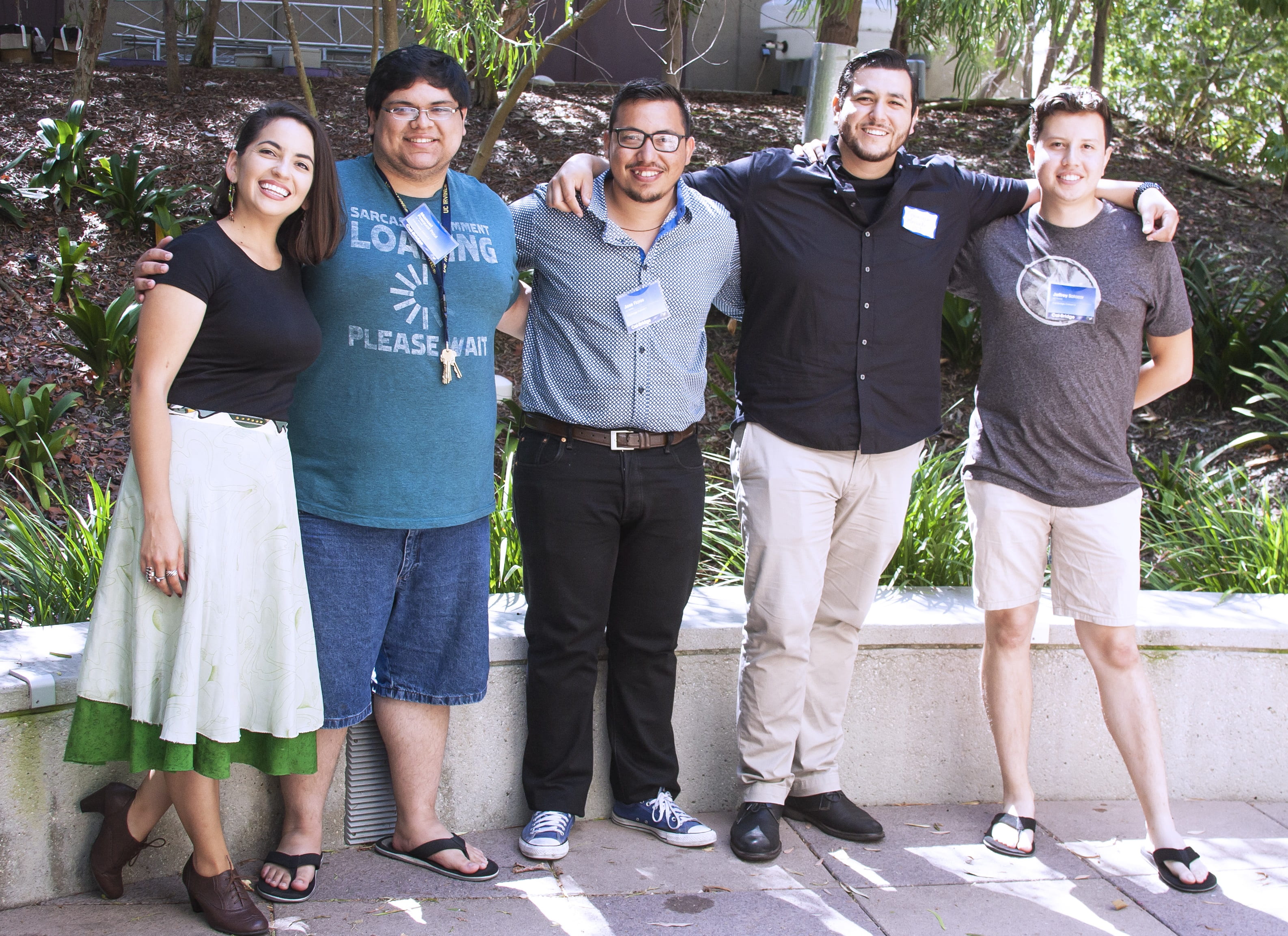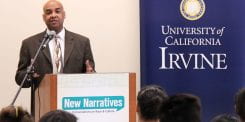NSF increases physics, astronomy scholarship funding for underserved Californians
UCI expects to double number of graduate students in Cal-Bridge program

Irvine, Calif., Oct. 3, 2018 – The University of California, Irvine is one of nine UC and 15 California State University campuses to share in an expanded five-year, $5 million grant from the National Science Foundation for scholarships through the Cal-Bridge program, which helps promising students from underserved backgrounds earn advanced degrees in physics and astronomy.
UCI is expected to more than double its number of Cal-Bridge scholars, currently five.
“In terms of both the student body and faculty, African Americans, Hispanics and women are severely underrepresented in our field, even though they make up a sizable proportion of the U.S. population,” said Tammy Smecker-Hane, UCI associate professor of physics & astronomy and director of the university’s Cal-Bridge program. “The mission of Cal-Bridge is to correct this disparity and open the doors of opportunity to people who have been left out for too long.”
Cal-Bridge began four years ago with a $600,000 grant from the NSF as a way to help undergraduate astronomy majors at California Polytechnic University, Pomona pursue graduate degrees at UCI and other Southern California UCs. The new NSF grant dramatically increases the program’s scope and reach, bringing into the network all UC campuses offering physics and astronomy Ph.D. programs and select CSU and community college campuses across the state. At its height, Cal-Bridge is expected to serve 50 underrepresented graduate students per year, doubling the number of doctoral students in physics and astronomy nationwide. The program is also growing in terms of the disciplines it covers – from just astronomy/astrophysics to bio-, condensed matter, particle, plasma and theoretical physics.
Cal-Bridge offers need-based full scholarships for juniors and seniors majoring in physics or astronomy at CSU institutions and then $10,000 for their first year of graduate school. In addition, participants can apply for an NSF Graduate Research Fellowship, which provides three years of funding. Three of the five Cal-Bridge scholars now at UCI have won this prestigious fellowship.
Mentors on UC and CSU campuses meet every other week with Cal-Bridge participants, who are also exposed to extensive professional development opportunities through regular meetings and workshops. Scholars are immersed in summer research projects with UC faculty and gain experience presenting their results at regional and national scientific conferences.
Cal-Bridge focuses on finding and cultivating students with untapped potential and helping them successfully transition from an undergraduate degree to a doctoral program.
Maria “Katy” Rodriguez Wimberly, a third-year graduate student at UCI, is among the campus’s first cohort of Cal-Bridge scholars. The U.S. Army veteran attended classes at the community college level before earning a B.S. in physics at California State University, Long Beach.
“Because of Cal-Bridge, I now have an incredible support system of similarly underrepresented astronomy grad students and mentors who actively work to build a more inclusive community here at UCI,” Wimberly said. “The camaraderie and guidance provided by this network has made being a first-generation graduate student not so scary and lonely.”
In addition, Cal-Bridge fosters a better understanding of traditionally underrepresented populations among university faculty and staff, and it encourages the adoption of more holistic admissions practices that lead to greater acceptance of students from a wide variety of backgrounds.
“Cal-Bridge has obvious benefits to the student participants, through the scholarship funding, mentorship, professional development and a host of support programs,” said Frances Leslie, UCI vice provost for graduate education and dean of the Graduate Division. “What’s less apparent, but also important, are the benefits accrued by the institutions involved through improved diversity and inclusion.
“UCI is a leading institution for student and faculty diversity in graduate programs, so it’s no surprise that we traditionally have had the highest number of Cal-Bridge scholars of all the UCs. My hope is that the success of Cal-Bridge will inspire those in other disciplines beyond physics and astronomy to establish similar programs to improve outcomes for minority students.”
Cal-Bridge is also advantageous to society as a whole, according to Smecker-Hane.
“If you think about it, we are bringing these ‘diamonds in the rough’ into the open, showing them to be the highly capable people that they are,” she said. “We are creating a pipeline of highly trained professionals who will fill faculty positions at institutions in California and elsewhere and take rewarding jobs at places like SpaceX and the Jet Propulsion Laboratory.”
About the University of California, Irvine: Founded in 1965, UCI is the youngest member of the prestigious Association of American Universities. The campus has produced three Nobel laureates and is known for its academic achievement, premier research, innovation and anteater mascot. Led by Chancellor Howard Gillman, UCI has more than 30,000 students and offers 192 degree programs. It’s located in one of the world’s safest and most economically vibrant communities and is Orange County’s second-largest employer, contributing $5 billion annually to the local economy. For more on UCI, visit www.uci.edu.
Media access: Radio programs/stations may, for a fee, use an on-campus ISDN line to interview UCI faculty and experts, subject to availability and university approval. For more UCI news, visit wp.communications.uci.edu. Additional resources for journalists may be found at communications.uci.edu/for-journalists.


